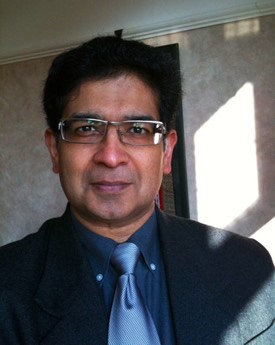Two Conceptions of Perturbed Subjectivity from Classical Indian Medicine
A Comparative Contribution to Psychiatric Phenomenology
CFS Lecture by Ram-Prasad Chakravarthi, Department of Politics, Philosophy and Religion, Lancaster University, UK.

Chakravarthi is Professor of Comparative Religion and Philosophy in the Department of Politics, Philosophy and Religion, and Associate Dean for Research, Faculty of Arts and Social Sciences, at Lancaster University, UK. His book "Divine Self, Human Self" was the winner of the Best Book 2011-15, by the Society for Hindu Christian Studies.
His research focuses on Indian and comparative phenomenology, epistemology, metaphysics and philosophy of religion.
Abstract
An authoritative classical Indian medical and philosophical text offers two different notions of perturbed subjectivity, one directly translatable from Sanskrit as ‘mental illness’ and the other with the same root word as ‘madness’. The former pertains to incapacity of judgement, inconstancy of conduct and other failures of a well-led life, whereas the latter concerns physiological malfunction and exogenously wrought stresses. Consequently, the treatment recommended on the path back to wellness is different in each case, although they both combine a range of factors meant to transform the phenomenology of illness. However, since this conceptualisation of psychiatry is set against a metaphysics of the subject that is neither materialist nor dualist, we are faced with a fundamentally different understanding of the categories of mind, body, and subjectivity. I describe this understanding as an ecological phenomenology. The general approach to the subject and the specific medical situation of perturbed subjectivity together offer an interestingly different angle to psychiatric phenomenology than might be found in contemporary Western discussions.
The lecture is open to all. Everyone is welcome!
